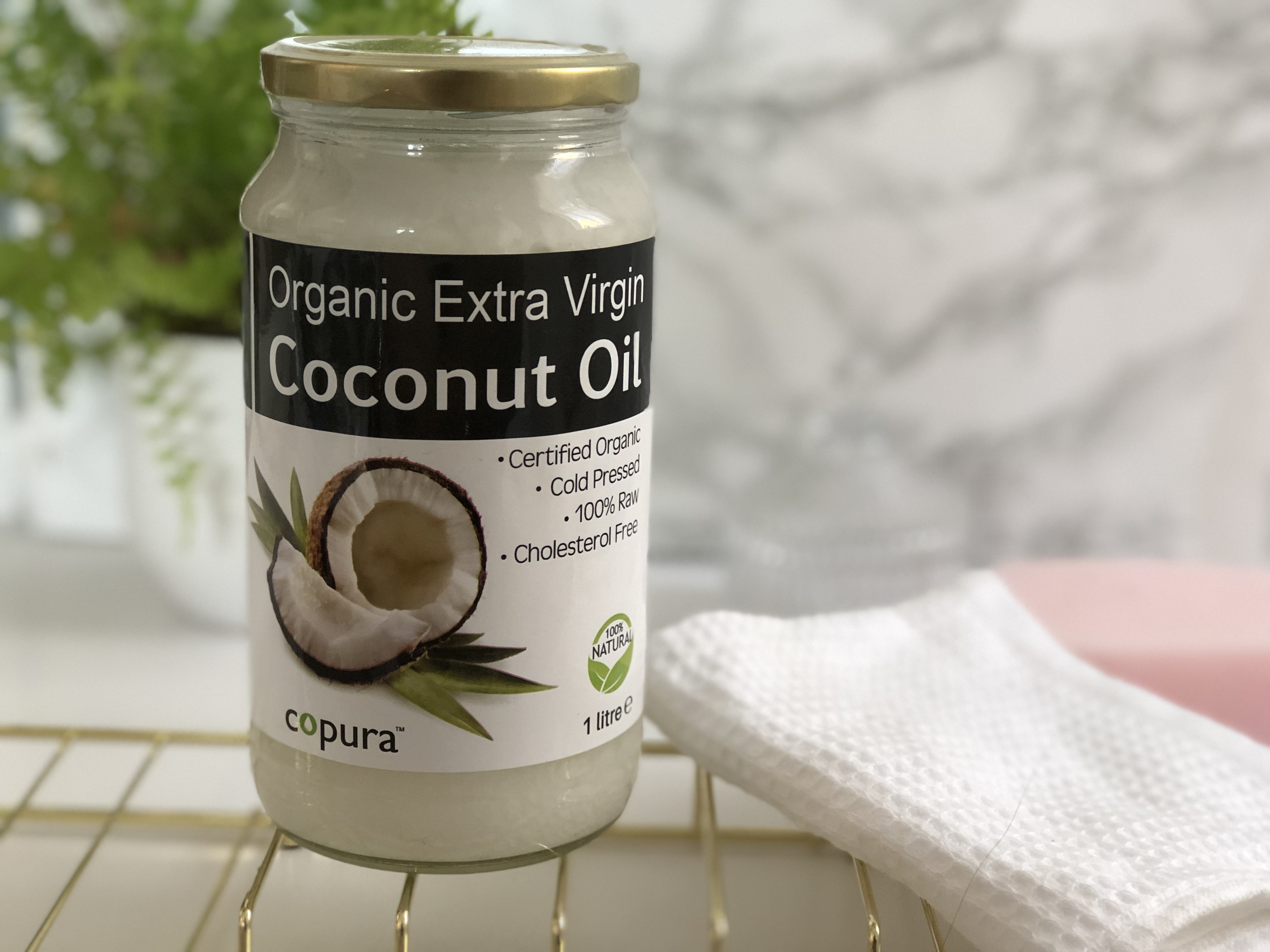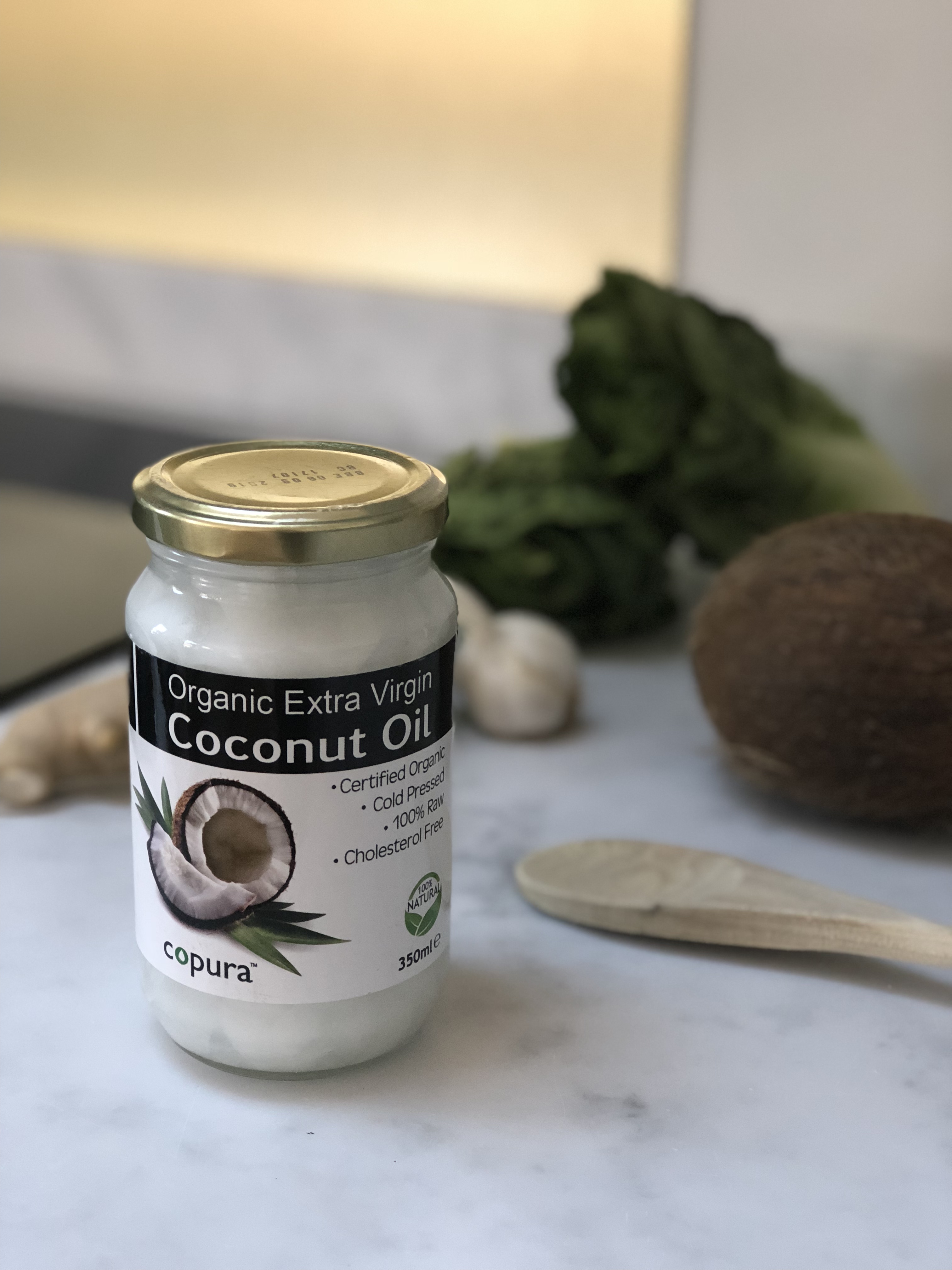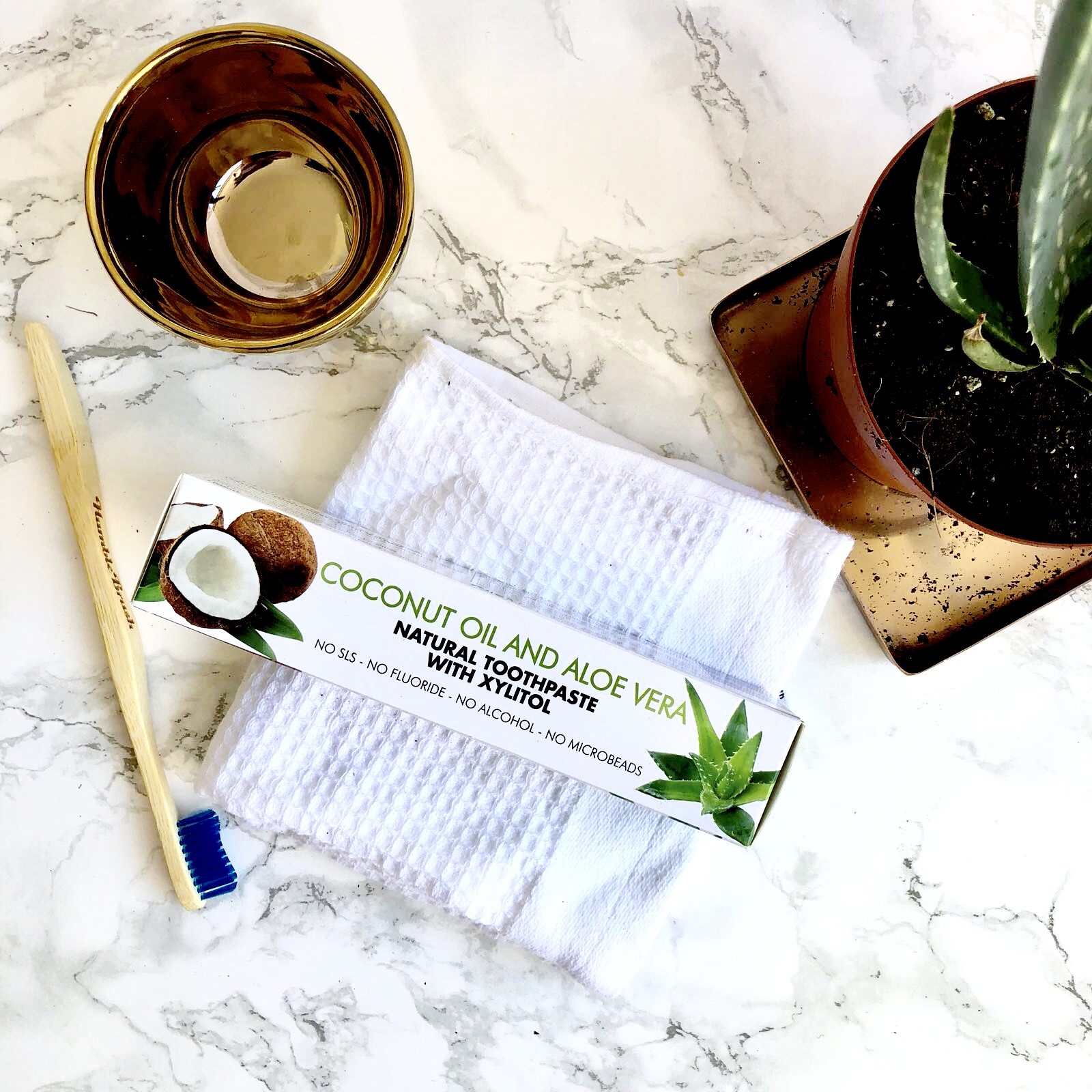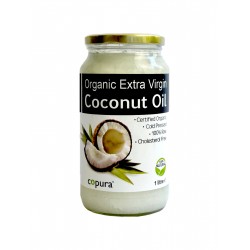
Everything you need to know about Cold-pressed Coconut Oil
Over the past few years, coconut oil has enjoyed a sharp rise in popularity owing to the versatility of the tropical drupe, nut, seed or fruit — take your pick.
Due to coconut oil’s nourishing qualities, it can be used for both cooking and in health and care products and has become a key component of many a shopping basket.
However, while many people are familiar with coconut oil, it is time to get to know the difference between general coconut oil versus cold-pressed coconut oil. After all, there are significant differences that are important to understanding if you are to choose the best coconut oil for the application you need.
For beauty care products, the best option — by far — is cold-pressed coconut oil, which is a rich source of nutritionally valuable fatty acids which is great for skin: it can be applied on the face or used as an all-body moisturiser. Additionally, cold-pressed coconut oil can be used on dry hair, hands and feet.
Coconut oil is a product that surely deserves a place on even the most modest of beauty cabinets or the thinnest of bathroom shelves.

The process is done by removing the flesh from mature coconuts — which have a higher oil content — which is then ground up into coconut flakes. At a low temperature, the coconut flesh is then extracted using a press, much like the extraction of most other oils.
It can be a lengthy process, which often means higher prices compared to inferior coconut-based oils or products, but it is by one of the most effective ways to retain the nutritional qualities. Because it is unrefined, its distinctive and delicious smell remain intact.
There are other ways to extract unrefined coconut oil, such as using a centrifuge, but it is believed that cold pressed coconut oil is superior — hence the generally higher price. But both extraction techniques are effective and lead to a nutritious product.
So now you know what it is, let's talk about the benefits of using cold pressed coconut oil.
2. Health benefits of cold pressed coconut oil
There is a good reason why cold pressed coconut oil has won the day. When oils are heated, it changes the structure on a molecular level, which, when ingested (eaten), can have various negative health impacts such as contributing to cardiovascular diseases and poor blow flow. Furthermore, heated oils have been linked to myriad other health problems including acne.
Equivocally, the nutrients in cold pressed oils remain intact, the molecular structure is not compromised and thus, have become a go-to product for the health-conscious many. Cold pressed coconut oil imparts great, nutty flavour, so many use it as a replacement for things such as butter.
3. Using cold pressed coconut oil as a cooking ingredient
It can also be used in cakes, salads, rice or any other type of food. Cold pressed coconut oil’s versatility has in no small part been a factor in its rapid rise.
It’s important at this stage, that you understand that there are differences between buzzwords such as “raw” and “virgin”: the extraction process of raw is never heated, while virgin — though not always — can be.
In short, raw means that it will generally be less processed, which means it will have a higher nutritional value. With coconuts, pretty much like everything else, processing generally depletes the good stuff.
Ok, you are now slowly obtaining your PhD in coconut oil, so let's look at why you should have some to hand for self-care regimen.
Cold pressed coconut oil has medium-chain fatty acids (MCFAs), which can add moisture to dry skin as coconut oil has a fast absorption rate. You will notice the difference to your skin pretty quickly and cold pressed coconut oil will no doubt become a mainstay feature on your shelf.
The great thing about unprocessed coconut oil is that nutritionally speaking, it’s almost as good as the raw flesh of the fruit without having the trouble of cracking one open yourself — which is a notoriously laborious task. This is why it makes such a top-notch self-care product.
On top of being good for your skin, MCFAs (as we previously mentioned), hold some great immune-boosting acids which also hold antibacterial properties, and although coconut oil does have a high saturated fat content, it’s important to note that not all saturated fats are equal. You may have heard of "MCT oil" this stands for "Medium Chain Triglyceride Oil" and it is often derived from coconut oil. MCT oil has long been used by athletes to improve their health. Read more about its benefits here https://www.tipsbulletin.com/mct-oil-benefits/
Scientific studies have shown that coconut oil’s medium-chain saturated fat does not raise the levels of bad cholesterol in the blood, quite the opposite, in fact: they do raise levels of good cholesterol. These positive health benefits mean that coconut oil is part of a healthy diet.
For people trying to omit additives from their diet, cold pressed coconut oil — additive-free and with limited processing refining, which means higher levels of antioxidants — is a great choice.
However, horses for courses, there is a place for both refined and unrefined oil depending on what you want to use it for. Refined coconut oil is ideal for cooking at high heat while cold pressed coconut oil is great for medium-heat cooking.
Studies have also shown that just one meal containing MCFAs, which are present in cold pressed coconut oil, can increase metabolic rate for a whole 24 hours. This could be helpful for athletes to improve their performance.
Additionally, studies have found that when coconut oil is added to the diet, on a per-meal basis, it can lead to considerably fewer vitamin B deficiencies and can help the absorption of calcium.
The energy pathway of MCFAs is so efficient that several studies have been done exploring their use for enhancing endurance and athletic performance. Although effects have been mild compared with drugs, researchers have discovered that a single meal containing MCFAs increases metabolism for up to 24 hours.
Cold pressed coconut oil, which kicks out a great smell, can also last a long time without becoming defective. Providing it is kept out of sunlight and direct heat, it will last for at least two years.
For those who have a natural aversion to the smell of coconuts, however, there are other options. You can buy fractionated coconut oils, which do have fewer nutritional benefits but are still worthwhile.

7. Home methods for making cold pressed coconut oil
We're willing to wager a bet that most people don’t have an industrial-level coconut cracking machine in their homes, but there are ways you can make your own oil. If you wrap coconut in a towel and crack with a hammer, you will be able to access the flesh.
Just like people, every coconut is different, and each one will have a different amount of water inside, which is a great and increasingly popular drink. To extract the water, pierce (or drill) a few small holes and pour out the good stuff. It can drink in its natural state, but can also make a super ingredient for smoothies, cooking (especially Asian food). What is great about coconut water, is that it has nothing to do with coconut oil, which as we said before, is extracted from the fruit’s flesh.
To make the oil at home, it is best to excavate the coconut flesh and then grate it. After this, add a bit of mineral water (which helps the extraction of the oil when it’s pressed) and place into a fine net bag. Then place the bag in a press, and press out the coconut oil, repeating the method at least several times. It is a simple, uncomplicated method.
8. Coconut oil byproducts and what to do with them
After this, you will be left with the fibrous flesh of the coconut, which is also a great byproduct in its own right and must not be wasted.
Hang the net bag out to dry and once it has dried, going it down into flakes or a flour-type product, which is ideal for cooking, baking or simply sprinkled on your bowl of cereals.
Your oil should be left to stand for at least 24 hours, and a kind of coconut cream will rise to the top, which can also be used for consumption in similar ways we mentioned above, while water will lie at the bottom.
Some say that you can use the cream to make coconut cheese. Many throw away the water, but that too can be used for cooking or smoothies. But the real treat is in the middle: the cold pressed coconut oil. You can then filter the oil to make it clearer and purer.
At this stage, let the coconut oil rest for a few days, and then you will finally have your batch of nutritionally rich, homemade cold pressed coconut oil.
9. Communities that consume lots of coconuts are healthy
Coconut-oil this, that, and the other, may well be a kind of hip fad in the West, but there are some communities around the world where the skull-like fruit from god is just part of their daily diet.
There is the case if the Tokelauans, people who live on the tropical South Pacific islands of Tokelau, a dependent territory of New Zealand, whose diet has consisted of around 60% of coconuts, which, goes without saying, contains coconut oil.
Studies have shown that the coconut-eating Tokelauans are generally in good health and experience extremely low heart disease rates.
Who doesn’t want to smell like a coconut on a night out? Cold pressed coconut oil’s aforementioned antibacterial qualities means that it can be used as a mouthwash, which can help to kill off some of those dirty little germs that exist in every human mouth on planet Earth.
The practice of dental cleaning and mouth washing with cold pressed coconut oil will not only lead to fantastic smelling breath but it will also show just how 21st-Century you are.












